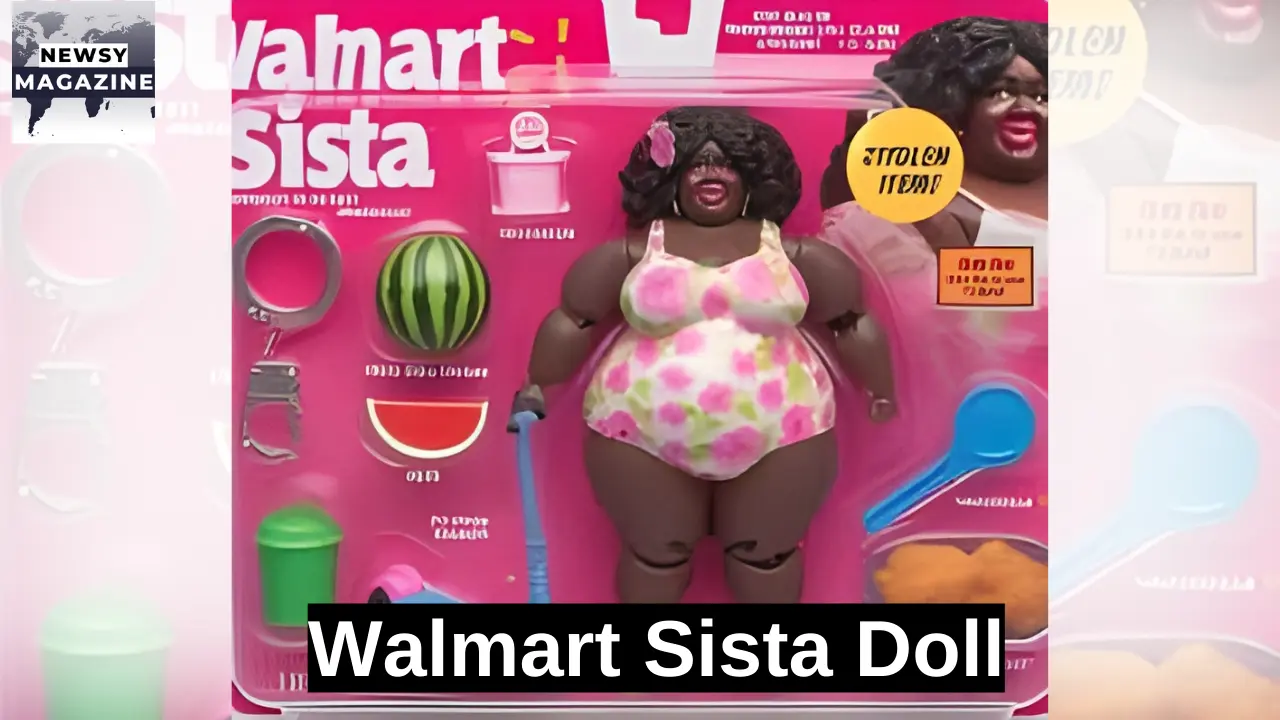
The Walmart Sista Doll has ignited a firestorm of controversy and outrage on social media. This article delves into the origins, reactions, and implications of this highly offensive meme. Whether you’re concerned about racial stereotypes or the speed at which misinformation spreads, understanding this issue is crucial. Read on to learn how this viral phenomenon underscores the importance of cultural sensitivity in today’s digital age.
Emerging from a notorious meme page, the Walmart Sista Doll depicts a caricatured Black woman with stereotypical accessories. Its realistic packaging misled many into believing it was an actual product sold by Walmart. This misconception fueled the outrage, as viewers were shocked and appalled by what they saw as a blatantly racist item. The swift spread of this meme highlights the power and perils of viral content.
Public reaction has been overwhelmingly negative, with social media users expressing disgust and condemnation. The meme’s offensive portrayal of Black women has been decried as demeaning and harmful. Walmart has distanced itself from the meme, clarifying that the doll is not a real product. This incident serves as a stark reminder of the persistent racial stereotypes in media and the need for vigilance against such harmful content.
Tracing the Origins of the Walmart Sista Doll Meme
The Walmart Sista Doll meme began circulating from a page notorious for its offensive content. Known as Tired Meme Clown X, this page specializes in creating and sharing racially charged and hateful memes. The doll, depicted with stereotypical accessories, was crafted to look like a legitimate product, complete with realistic packaging. This deceptive presentation misled many, igniting widespread outrage and condemnation from viewers.
Despite its convincing appearance, the Walmart Sista Doll is not an actual product sold by Walmart. The meme’s creators used familiar branding to amplify the shock value, making it seem like a genuine item. This tactic succeeded in drawing attention and eliciting strong reactions. The controversy surrounding the meme highlights the power of digital content to mislead and the ongoing issue of racial stereotyping in media.
Public Reaction and Outrage
The public reaction to the Walmart Sista Doll has been overwhelmingly negative, with many people expressing their anger and disappointment on social media. Platforms like Twitter, TikTok, and Facebook have been flooded with comments condemning the meme for its racist and demeaning portrayal of Black women. Influential voices and everyday users alike have called for accountability and greater cultural sensitivity, highlighting the meme’s offensive nature.
The controversy has sparked broader discussions about racial stereotypes and the role of social media in spreading harmful content. Many have pointed out that while the doll itself is not real, its impact is significant, perpetuating negative stereotypes and causing real harm. This widespread backlash underscores the need for vigilance in addressing and combating racially insensitive content, ensuring that such offensive portrayals are not tolerated or normalized in society.
Analyzing the Broader Implications of the Walmart Sista Doll Controversy
The Walmart Sista Doll meme serves as a disturbing reminder of how deeply ingrained racial stereotypes can resurface and spread rapidly in the digital age. This offensive depiction of Black women reinforces harmful stereotypes that have long been used to demean and marginalize them. Such representations contribute to a broader culture of racism and insensitivity, making it crucial to address and counteract these narratives proactively.
Moreover, the viral nature of the Walmart Sista Doll meme highlights the challenges of combating misinformation and offensive content online. Social media platforms can amplify harmful messages, making it easier for such content to reach a wide audience quickly. This incident underscores the importance of digital literacy and the need for social media companies to implement stricter policies and measures to prevent the spread of racially insensitive material.
Walmart’s Official Response to the Controversy
Walmart has made it clear that the Sista Doll is not an actual product they sell and has no connection to their stores. Despite the realistic appearance of the packaging, the company confirmed that this offensive item is not available for purchase either in-store or online. Walmart’s swift disassociation from the meme underscores its commitment to maintaining a respectful and inclusive brand image.
The company has taken steps to clarify the situation and address public concerns. Walmart has emphasized that it had no part in creating or distributing the Sista Doll. This incident highlights the importance of verifying the authenticity of online content before reacting or sharing. By distancing themselves from this harmful meme, Walmart aims to uphold its values and protect its reputation from misleading and offensive content.
Conclusion
The Walmart Sista Doll controversy highlights the enduring problem of racial stereotyping in media and the rapid spread of misinformation on social media. While the doll itself is not a real product, its impact on public discourse is very real. This incident serves as a reminder of the importance of cultural sensitivity and the need for continued vigilance against hate speech and racial stereotypes.
In a world where digital content can spread like wildfire, it is crucial to approach such controversies with a critical eye and a commitment to promoting inclusivity and respect. The public’s unified condemnation of the Walmart Sista Doll meme is a step in the right direction, signaling a collective refusal to tolerate such offensive portrayals in any form.
Read Also: Tex9.net PlayStation
FAQs
What is the Walmart Sista Doll?
The Walmart Sista Doll is a controversial meme depicting a caricatured doll of a plus-size Black woman with stereotypical accessories. Despite its realistic appearance, it is not a real product sold by Walmart.
Where did the Walmart Sista Doll meme originate?
The meme originated from the Tired Meme Clown X page, a platform known for creating and sharing offensive content.
How has the public reacted to the Walmart Sista Doll?
The public reaction has been overwhelmingly negative, with widespread condemnation on social media platforms for its racist and demeaning portrayal of Black women.
Is the Walmart Sista Doll available for purchase?
No, the Walmart Sista Doll is not an actual product and is not available for purchase at Walmart or any other retailer.
What can be done to combat such offensive memes?
Combating offensive memes requires a multifaceted approach, including promoting digital literacy, encouraging cultural sensitivity, and holding social media platforms accountable for the content shared on their sites.






